Ten years ago, some members of the U.S. Catholic editorial staff were still in college, one was just starting high school, and some remember being evacuated from our offices, as they're just a block away from the Sears Tower.
What are your memories of 9/11? Share them in the comments.
Meinrad Scherer-Emunds, Executive Editor
Arriving at the U.S. Catholic office on the morning of September 11, 2001, it was our new boss—who had started work under rather tumultuous circumstances the day before—who told me that a plane had flown into the World Trade Center in New York City. Before I could even digest that, another co-worker brought the news that a second plane had just hit the second tower. Somebody set up an old portable TV in an empty cubicle, and we watched stunned what was unfolding on the small grainy black and white screen before us.
Kevin Clarke, then our managing editor for online products, whose roots are in a New York Irish Catholic family that includes many cops and firemen, frantically tried to get news from family and friends. Later that morning Chicago media reported concern about the city’s 110-story Sears (now: Willis) Tower—one block away from our office—as a potential target, and, along with the surrounding blocks, our building was being evacuated.
When my wife and I picked our sons up at their grade school that afternoon, we struggled with how best to talk with them about what had just happened—the awful images of the collapsing towers still fresh in our minds. Teachers had broken down crying in their classrooms, and the kids were a bit shaken and unsure what to make of it all. In that uncertainty there was some comfort in gathering with our church community for a service that evening and observing a moment of silence with thousands gathered on Chicago’s Daley Plaza three days later.
I remember the subsequent weeks being full of mixed emotions—sadness over the senseless murder of thousands; pride in a nation coming together and in the outpouring of support, love, comfort, and volunteer commitment; hope that the world’s solidarity with and sympathy for the U.S. might be the beginning of something good; and worry over growing anti-Muslim hatred, over an increasingly jingoistic turn toward vengeance and war, and over what consequences war might bring for people here, in Afghanistan, and around the world.
When I mentioned in my editors’ note in the December 2001 issue that, because the United States was going to war in Afghanistan, I had taken down the American flag that we had been flying by our front door, we received quite a bit of hate mail from fellow Catholics—some too vile to print. Those we did print found my column deeply disappointing, hypocritical, naïve, self-righteous, anti-American, horrifying, and shameful. Yet when I read it again after 10 years—with the tremendous costs of two intractable wars in mind—I still can’t help but wonder if there couldn’t have been a better way to respond to the awful challenge the terrorist attack of 9/11 presented to our nation and our faith.
In retrospect I am still proud that U.S. Catholic–at the outset of both the War in Afghanistan and the Iraq War–provided a much-needed voice of reason, urging caution and raising important questions about the moral implications of military action. If only many more other Catholic and non-Catholic voices had done the same, we might have been able to avert some of the tragic and costly mistakes of the past 10 years.
Bryan Cones, Managing Editor
My most vivid memory of September 11, 2001 was watching a long line of New York City firefighters on TV enter the second World Trade Center tower after it was struck by a passenger jet. Five minutes later the tower collapsed, and I realized that they were all certainly dead, their lives cut short in a burst of heroic self-sacrifice. Their courageous response to an unthinkable catastrophe exemplified the best of the American spirit: a sense of duty, service to fellow citizens, unflinching bravery.
Unfortunately, what has transpired in the wake of that tragic day did not always reflect our nation’s best. September 11 led Muslim Americans to experience the xenophobia and racism that is an undeniable part of our history. The people of Afghanistan, already suffering the despotic rule of the Taliban, would soon enter yet another decade of renewed war. Iraq, no less oppressed, though by a man without connection to 9/11, would soon be torn apart not only by bombs and tanks but by violent sectarian strife that pitted Sunni versus Shi’a within Islam, while Iraqi Christians were either killed or dispersed.
Back on the home front, military families would bid farewell to daughters and sons, some 6,000 of whom would never return, while tens of thousands of others would come home maimed in body and spirit.
It should be hard for any disciple of Jesus to consider the last decade and admit that most of us who acclaim him Lord and Son of God did the very opposite of what he counseled, choosing war over peace, hatred over love, vengeance over forgiveness. Our national conscience still awaits the fearless examination that would lead to repentance. But it is never too late: To paraphrase St. Paul, now is always an acceptable time to choose the path of salvation.
Cathy O'Connell-Cahill, Senior Editor
A friend called around 9 am looking for my husband, who wasn’t home. “Have you seen what’s happening?” he said. “A plane hit the World Trade Center, and one of the towers fell down.”
I thought he must be mistaken, overreacting, got it wrong. How could a plane knock down a building?
My sister and my niece came over, my niece frantic over a good friend (now her husband) who was working in New York and out of contact. She knew he didn’t work near the towers, but that made no difference, understandably. We walked to a little neighborhood café to try to take it in together, to get away from the TV and out among the trees and the sunshine. Then we walked to Our Lady of Mercy, our parish school, to collect our son, an eighth grader, and our daughter, in first grade. The school had stayed open, but parents streamed in throughout the day to gather up their boys and girls. Our principal wrote later about what got her through the day: “Seeing innocent children engaged in the business of learning gave me hope.”
Our best friends had two sons who were then students at Archbishop Quigley, a high school seminary famous in Chicago history, in its historic building a block from Chicago’s John Hancock tower. The faculty had gathered the students in the soaring chapel, where they stayed, sitting together and praying, until it was time for them to go home, or until their parents came for them. Our friends said they couldn’t have imagined a better place for them to be that day.
My 8th grader was well aware of what had happened. But what about the first grader? We did what we thought was a good job shielding her from nonstop TV news, from repeated images of the towers falling, of people jumping out of windows. She told us years later that she’d seen them fall on TV in school. I suspect she was playing along with us, so we wouldn’t worry about her. One job of parents is to help their kids feel safe. Now we confronted the worrying question of how to do this in a post-9/11 world.
The days and weeks that followed seem to me now a collective “Life is precious” reaction, often experienced by people who survive a close call with death, or who watch a loved one die in their prime. People found actual time for the things they knew all along were important. The Chicago Sun Times wrote of a young Chicagoan recently relocated to New York, who lost two friends in the attack. She quit her new job and moved back home to Chicago where her grandmother was battling cancer. “I know my grandmother might be dying,” she said, “and I feel this incredible need to waste no more time and be with her and my family.” This reaction rarely lasts forever, but it can offer a valuable course correction if you let it.
My daughter learned to ride her two-wheeler three days after 9/11. My husband, with no baseball or work to distract him, spent the afternoon running up and down the block with her as she steered her lavender bike between the green lawns to her left and right. After one particularly long ride down the sidewalk, she dropped the bike, pumped her fist, and whooped for joy. A woman passing by stopped to watch. She looked at my husband, smiling. “Life with a capital L,” she said, and walked on down the block.
Meghan Murphy-Gill, Assistant Editor
The first news I got of the September 11 attacks was listening to the radio just before I got into the shower. I was a college senior, excited about my last year of school and looking forward to discussing an article I’d just read the previous evening in my International Relations class. A D.J. casually mentioned that there was some news about a plane clipping a building in New York. I turned off the radio and began to get ready for class.
My roommate began banging on my door, yelling at me to come out and watch the TV with her. We sat on the couch together and watched the twin towers fall as news came in about Pennsylvania and Washington, D.C. Rather head to class, which was never officially cancelled, I sped over to the newsroom of my college paper and began collecting stories from various friends and recent graduates living in New York and D.C. (My school was just two hours from Washington and about five from New York. Most students hailed from the Northeast and Mid-Atlantic.) Of those of us still in the small town in the Shenandoah Valley, the general consensus was that we felt like we were in a bubble, protected, yet too separate from “the real world.” 9/11 woke us up to our bubble, but at school, we still felt distanced from it all.
The newsroom had a single TV, and several of us crowded around, quietly. I recalled how not a year prior, we’d watched the presidential debates on this same TV, casting good-natured insults at each other over how well our preferred candidate was doing. And I wondered to myself what road the president would lead us down in response to these attacks, praying that war would not be the answer.
My parents, both in the military, were unreachable for days. When I finally talked to my mom, she’d told me about how her office had to barricade their doors and set up as if their base was under attack. I remembered how in 5th grade, during the first Iraq war, my parents were ready to be deployed at a moment’s notice. My brother had just turned 7 a couple weeks before September 11, 2001, and I worried how another war might impact him.
Eerily, that article I’d read the evening of September 10, was Samuel P. Huntington’s “The Clash of the Civilizations.” It had both intrigued and concerned me. And while there are several solid criticisms of Huntington’s theory (that the world’s conflicts post-Cold War would be largely across cultural and religious lines), on the morning of September 11, when the world’s 1.5 billion Muslims were being lumped into a single category by Americans who claimed that “they” (Muslims) had attacked “our” (Westerners) way of life, Huntington’s theory felt hauntingly real.
In retrospect, I agree with the criticisms and think it’s exactly this mindset that we need to avoid. The cultural and religious realities of the world are incredibly diverse, and to categorize all Arabs as Muslims and all Muslims as extremists/terrorists can only bring about destruction.
Scott Alessi, Assistant Editor
I wasn’t actually able to hear the explosions on the morning of September 11, 2001, but much like the rest of the country, I was certainly engulfed by the aftershocks of the day’s tragic events. Living in a New Jersey suburb not far from Manhattan at the time, it seemed like life came screeching to an abrupt halt the minute the towers were struck, and it felt as if things would never return to normal.
Once the news spread it resulted in the rapid closure of schools, offices, and other businesses. No one knew what would happen next, and people rushed home to be with their loved ones or to contact those they knew who may have been in the city that morning. Local churches quickly tried to organize prayer services, and many had flocked to their parishes to seek God’s guidance, not to mention one another’s comfort.
I remember going out later in the afternoon, just when evening rush hour would normally begin, to find the highways eerily quiet and empty. I flipped on a local radio station, which had suspended its usual programming and opened the phone lines. Some people called in get the word out to family and friends that they were safe and still trying to make it home. Others called to give out the names of those they hadn’t heard from in hopes that someone would have news about them. And some just needed to voice their fear, confusion, sadness, or anger. Suddenly the greater New York area had become like one big family, sharing in a universal feeling of vulnerability, putting aside their divisions and connecting on the most basic human level.
As the days stretched on, the news continued to replay footage of the attacks and to report on people who had been identified—dead or alive—or who were still missing. It seemed that this had become the “new normal,” and it was hard to imagine life returning to its former state.
Yet slowly but surely, it did. We went back to work and school. We argued over the appropriate actions to take in response to 9/11 and were sharply divided over the wars America waged. We saw ourselves less as one united nation and more as red states and blue states. We grumbled over delays at the airport and looked suspiciously at those who may have resembled the terrorists responsible for 9/11.
Ten years later, we certainly have not forgotten 9/11, but we have forgotten some of the promises we made that day—not to take things for granted, to be better citizens and neighbors, to be more like the heroes who gave their lives to save others. As we look back today, my prayer is that we will find a way to see ourselves as we did in the wake of September 11: as children of one God, relying on our faith and one another to overcome life’s challenges.
Liz Lefebvre, Editorial Assistant
On September 11, 2001, I was a few weeks into my freshman year of high school. As the news broke of the attacks on the World Trade Center, I remember watching on the TV in my homeroom as the second plane hit and feeling shocked by the terrible loss of innocent lives. However, sitting in a classroom in Minnesota, hundreds of miles away from New York City, I remember thinking that this probably wouldn’t affect my everyday life very much.
Most teachers tried to go ahead with regularly scheduled classes that day, and very few permitted us to have TVs on in class to be watching the latest news. That night I remember working on my homework while my parents watched the stream of images recapping the day on TV. Shocked that I was expected to have my homework completed in the face of this tragedy, my parents took our family to a prayer service that had been organized at our parish.
I spent essentially the entirety of my formative years in high school and college in the “post-9/11 world.” I began to take more interest in watching the news and reading the paper beyond the sports section, as stories such as the passing of the Patriot Act and the torture of Iraqi prisoners began grabbing headlines. It was in the context of these costly effects of the War on Terror that I chose to study in college such topics as the rhetoric used in times of war and peace, the American homefront during wars, and Islamic ethics of war and peace.
As a student of history I’ve found myself thinking about how the years after 9/11 will be remembered in the history books. Will it be noted as a time of unity and patriotism, or a time of fear, hatred, torture, and death? Besides the deaths of so many troops and innocent civilians, what else will be listed among the casualties of the War on Terror?
I hope that in the next ten years, as we continue to heal as a nation, we can utilize sound judgment and critical thinking skills, so that “protecting freedom” does not continue to be a blanket justification for many of the crucial decisions our country makes.


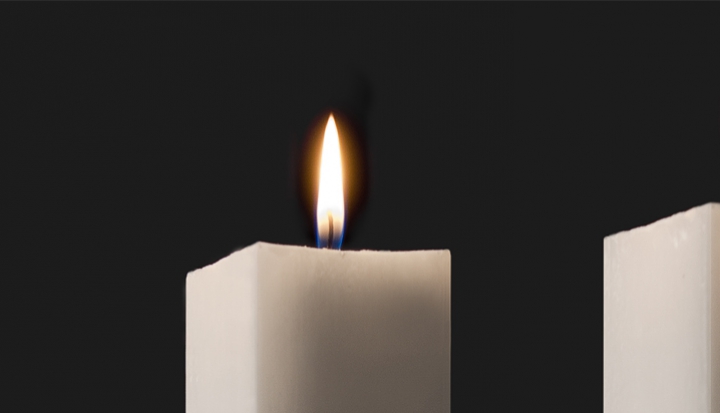


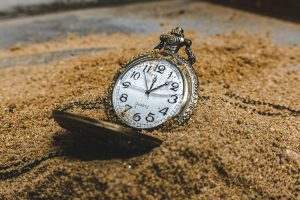
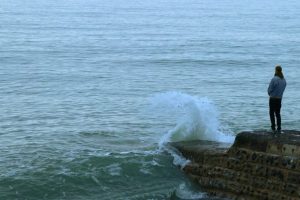
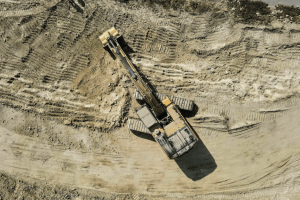





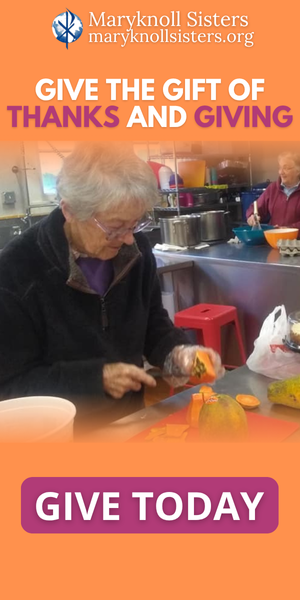

Add comment